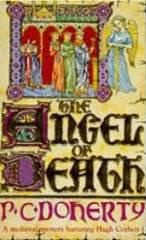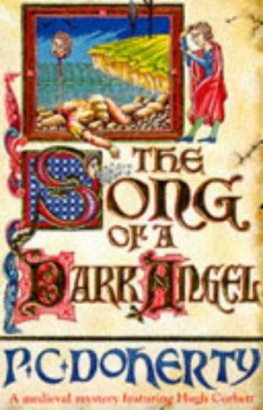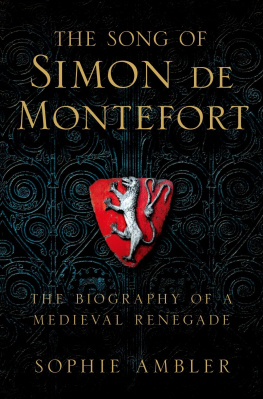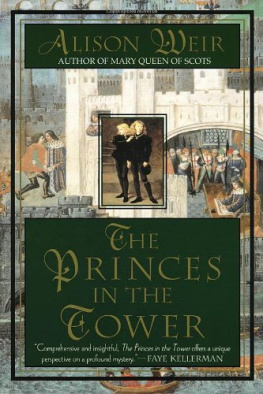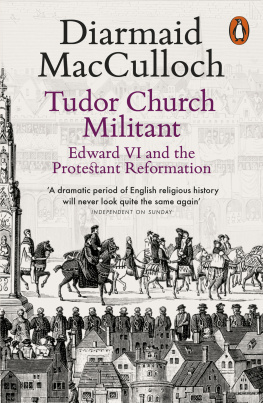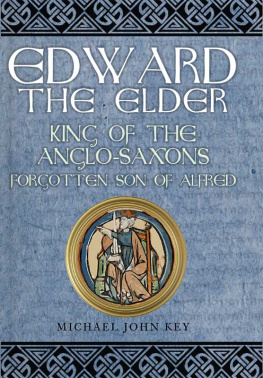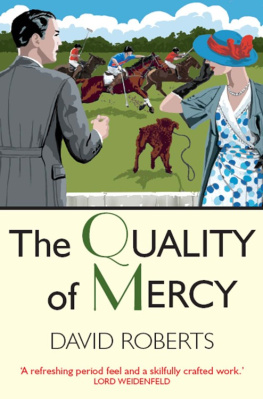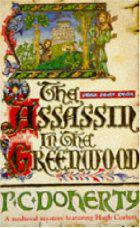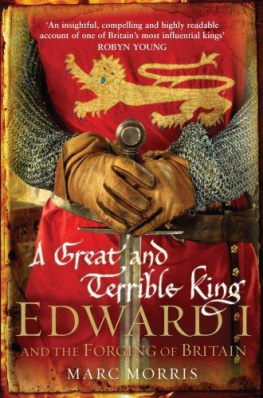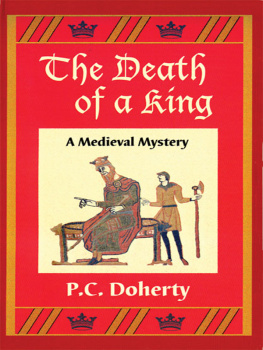Author: Paul Doherty
Title: Angel of Death
Series: Hugh Corbett medieval mysteries
Position: 4
Version history:
1.0 Eeyore - Scanned and checked
Angel of Death
Paul Harding
O day of wrath, o day of mourning! A common feeling amongst men as the end of the century approached. They talked and gossiped about how, in the year 1299, something terrible would happen to mark the changing of the century. Men pointed to the inclement weather, the failure of crops and the outbreak of war as signs on the dark-edge of the world that the Anti-christ had been born. In the cities and villages Satan and all his imperial army had been seen singing their diabolical matins in the wet dank woods. Men believed Satan walked. His time had come and no more so than in Scotland, where King Edward I of England had led a huge army of foot and horse to bring his rebellious subjects to their knees.
If the devil did walk and if he did lurk in the darkness then surely he must have taken up his throne in the dark, wooded slopes overlooking the English camp outside Berwick. There, wrapped in a brown woollen cloak, seated on a trunk in his purple silk war pavilion, Edward of England was bitterly regretting the evil he had done that day. He poured himself a large brimming cup of blood-red Gascon wine, and sipping it while he half listened to the sounds of his camp, the calls of guards, the faint neigh of. horses, the crunch of mailed feet on the crushed bracken. He was cold. A wind had swept in from the grey, cruel North Sea and, despite all his attempts to keep warm, Edward of England shivered. He wanted to go down on his knees and confess to his creator his terrible sin. Cain's sin,
the sin of anger, of murder; and yet he meant well. He had spent twenty-four years of his reign attempting to bring order to these islands, crushing the Irish, bringing the Welsh to heel and, at last, conquering the Scots. Had he not intervened and given them a king, their own noble, John Balliol? Yet what had happened? Edward felt like squeezing the cup in his hands. Balliol, conspiring with his enemies abroad, Philip of France and the King of Norway, had risen in rebellion. Edward, swearing terrible oaths, had taken his huge force north and crossed the border, sacking the priory of Coldstream and everything else in his way until he came to Berwick. He hated that town on the Scottish eastern march, full of fat burgesses who looked after their own concerns, revelling in its nickname of the Alexandria of the West.
Its citizens had seen Edward's fleet at sea and the huge force of English, Welsh and Irish: the lines of bowmen, the serried ranks of men-at-arms, the colour and panoply of his cavalry. Yet those same burgesses of Berwick had refused him entry, saying that their fealty was to John Balliol, the rebellious king. Edward had immediately ordered an all-out assault, screaming in rage when he heard how his fleet had been driven back and his soldiers were dying in their hundreds in the ditches under the walls of this rebellious city. Finally, his own nephew had received his death wound, a huge quarrel from a crossbow smashing into his unprotected face and turning it into a screaming bloody pulp. That had been the last straw for Edward. He had mounted his great warhorse Bayard and personally led the charge across the narrow ditch of Berwick and stormed the gate. In the face of such fury the Scots had given way. Once the English had seized the gates, the terrible slaughter had begun. Edward, furious with the rebellious citizens, ordered his soldiers to show no quarter and the day had been given over to sacking the city. Men, women and children were cut down in their hundreds; the wells choked with corpses; the bodies littered the streets like leaves on a windy autumn day. Churches had been sacked and horses stabled there, precious ornaments looted, silken hangings torn down. Children had not been spared; they were knifed, beheaded and impaled on lances. Women in their hundreds were raped before their throats were cut, and then the entire city was put to the torch. Edward had seen it all. A terrible descent into hell as he rode his great, black warhorse along the terror-filled, narrow streets. Eventually, he had seen one of his Irish footmen cut the throat of a woman begging for mercy and Edward had dismounted, muttering, 'Oh no! I did not wish this!' On his knees he had tried to beg God's forgiveness but God had moved away from Edward of England. The king felt it would be useless giving orders for the killing to stop now, for the English had simply run out of people to slay.
Only one place held out: the Red House owned by Fleming merchants, their own trade hall in Berwick given on the sole condition that they would always defend it against the English. The Flemings proved their loyalty, barring doors and windows; they had kept the English army at bay while they fought from room to room, even hiding in the cellars, trapping the archers Edward's captains sent down after them. The slaughter had been terrible. The house was well named, Edward mused, for by the time his attack had been beaten off there were pools of blood at the foot of its walls and huge red gashes where the blood poured down from the bodies lolling out of the windows. Tired and weary at such resistance, Edward had called off the attack and ordered the place to be burnt to the ground, closing his ears to the dreadful screams of burning men. He had sat on his horse, encased completely in black armour, a gold circlet around his helmet, watching impassively whilst the Red House burnt, ignoring the cries of the Flemings and the stench of their burning bodies.
Now it was all over. Berwick was a sea of ashes. The rebellious John Balliol had already sent messages to the
king's camp, promising to do fealty, abdicate his royal rights and leave Scodand for ever. Edward was satisfied. His rule had been accepted and the rebels smashed. Treason, once again, had earned its just deserts, but Edward knew there was something wrong. Such killing, such murder, such hatred would cause new troubles to fester in Scotland, and Edward was tired. Twenty-four years a king, the sweet taste of victories, of triumphant glory, had already turned into a bitter bile. He had buried his young children in their little coffins at Westminster and St Paul's. He had also lost his adoring wife Eleanor and Robert Burnell, his faithful chancellor; all gone into the darkness. Only Edward, God's anointed, was left on this earth, attempting to bring order out of chaos.
Edward chewed nervously at a fingernail. And behind him what was happening? His usual cordial relationship with the great barons of England was also turning sour. They were beginning to object to his war taxes and arduous campaigns. They did not share his vision, so objected in an ever rising chorus of protest. Edward took a large mouthful of wine and swirled it around in his mouth, hoping it would calm the raging abscess in one of his teeth. 'All things break down,' he murmured. His rule, his health. Would he continue to spend the rest of his life in cold tents outside desolate towns? Would that be his reward for eternity? Sitting in some icy part of hell, unable to achieve what he so desired? Edward felt Satan was close. The king licked his lips. He would go south. He would rebuild Berwick and restore the priory at Coldstream. He would have masses said in all the churches, abbeys and cathedrals. He would do penance. He would talk to God. Surely a fellow monarch would understand? Edward of England cowered deeper in his cloak and listened to the wind rise outside. Was it the wind or the hymn of Satan's army camped about him, waiting for his soul? The king put the wine down and, going over to his trestle bed, lay down, praying for sleep to calm the pain in his body and soothe the iron-hard anxieties in his soul.
A few weeks later, in a small white-washed room in London, Edward might have met a man who fully understood the iron bitterness of hatred and the unquenchable hunger for vengeance. The man sat on a small stool, shrouded in his robe, the cowl pulled over his head to hide his face. He just stared at the simple altar; only the crucifix hanging above it was clear in a pool of light thrown by a solitary candle. Like Edward, the man was cold, not just because it was winter or the lack of fire in the room, but rather from an iciness which came from the innermost part of his being: a malicious hatred which dominated his every waking moment, his every thought, no matter how calm his outward appearance seemed. For this man hated the English king. A hatred which had grown like some rare exotic plant, tended carefully, nurtured every hour of the day since the news had come from Berwick. The man wanted revenge. He knew from the Bible about vengeance being the Lord's but such thoughts were no comfort. At first he had wanted vengeance for justice's sake but, now, he feasted on his hatred for the English king as he would on a good meal or savour a rich wine.
Next page
